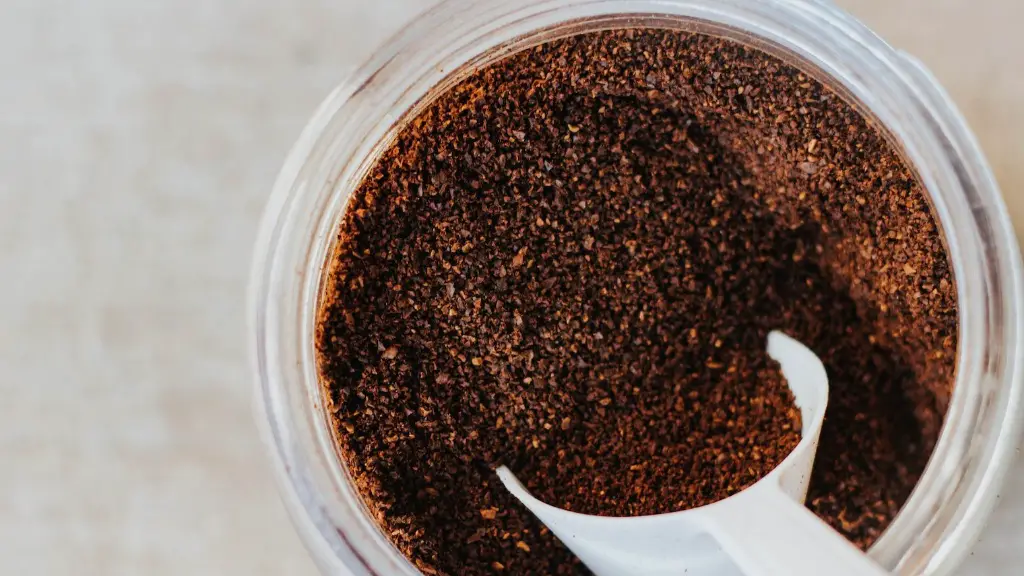Is it OK to Drink Coffee Everyday while Pregnant?
Drinking coffee while pregnant can be a controversial topic, as many people are not sure how much coffee is safe for an expectant mother to consume. The American College of Obstetricians and Gynecologists (ACOG) recommends that pregnant women limit their daily caffeine intake to no more than 200 milligrams per day; one eight-ounce cup of coffee contains about 95 milligrams of caffeine. Excessive caffeine intake, beyond what’s recommended, has been linked to an increased risk of adverse pregnancy outcomes, including an increased risk of miscarriage.
Several studies have found that moderate caffeine intake during pregnancy is associated with a slightly increased risk of premature birth, low birth weight and smaller fetal head size. The results of these studies suggest that it is best to limit coffee intake while pregnant, and that it is not advisable to drink coffee daily while pregnant. Nevertheless, other studies have found no link between caffeine and adverse pregnancy outcomes, and a 2018 meta-analysis found that moderate caffeine intake was not associated with an increased risk of preterm birth.
Most pregnancy healthcare professionals advise women to exercise moderation when it comes to coffee consumption and to make sure that coffee is not the only source of caffeine in their diets. While there is no definitive answer as to the safety of drinking coffee while pregnant, there are things to keep in mind while pregnant and considering drinking coffee. Caffeine can cross the placenta, entering into the baby’s bloodstream, so it is important to follow the guidelines set forth by ACOG and limit caffeine intake.
If you’re pregnant and plan on consuming coffee, it’s best to talk to your healthcare provider to determine what’s best for you and your pregnancy. Remember, there are alternatives available, such as decaffeinated coffee, which may be a better choice during pregnancy. Furthermore, foods and drinks such as tea, chocolate, and soft drinks are all sources of caffeine, so be mindful of your total daily intake.
Risks of Drinking Too Much Coffee While Pregnant
Studies have shown that drinking too much coffee while pregnant can carry risks to both the mother and the baby. One potential risk is that drinking large amounts of coffee has been linked to an increased risk of miscarriage, with some studies reporting as much as a 60 percent increase in risk with high caffeine intake. This is likely due to the effects of caffeine on the placenta and the fetus. Furthermore, caffeine has been linked to an increased risk of preterm delivery, low birth weight and even stillbirth.
It is important to note that pregnant women should be especially cautious when it comes to drinking coffee. Caffeine has an extensive list of possible side effects and interactions with other drugs, which makes it important to speak with your healthcare provider before incorporating coffee into your pregnancy diet. Additionally, certain types of coffee, such as instant and decaffeinated, may have higher levels of certain naturally occurring compounds, such as cafestol and kahweol, which can increase cholesterol levels, thereby increasing the risk for heart disease. So even if you are drinking decaffeinated coffee, it is important to keep your consumption in moderation in order to stay healthy.
Other potential risks include increased stress levels and dehydration. Drinking too much coffee can lead to increased stress, which can be detrimental to mother and baby. Caffeine also acts as a diuretic, meaning that it can cause dehydration. Dehydration can be dangerous for pregnant women, as it can lead to decreased blood volume, which is necessary for providing nutrients to the baby.
Finally, it is important to note that coffee may interact with certain medications during pregnancy, so it is important to talk to your doctor if there are any drugs you are taking that could be affected by caffeine.
Alternatives to Drinking Coffee while Pregnant
The best way to enjoy coffee while pregnant is to keep it light. Opt for decaffeinated coffee, herbal and green tea, or a caffeine-free alternative such as chamomile or rooibos tea, to reduce the risk of any adverse pregnancy outcomes. Additionally, there are other sources of caffeine available which can be used to satisfy a pregnant woman’s caffeine cravings.
Chocolate is a great alternative to coffee, as it can still provide the same boost in energy. Additionally, chocolate contains antioxidants which can help combat free radicals and improve overall health. Additionally, chocolate has been found to be beneficial for pregnant women, as it is a good source of iron, magnesium and calcium, which are important nutrients for a healthy pregnancy.
Fruit juices are also a great way to satisfy cravings for something sweet and also get some nutrients at the same time. For example, orange juice can provide the same boost in energy as coffee, as well as plenty of vitamin C. Additionally, apple juice is a great energy booster, as it is high in carbohydrates and natural sugars.
Finally, lots of people rely on energy drinks to get their caffeine fix, but these are not recommended during pregnancy. Many energy drinks contain high amounts of caffeine and other ingredients, such as taurine, which can be harmful to a developing baby. If you’re looking for an alternative to coffee, your best bet is to opt for a caffeine-free energy drink.
Coffee and Breastfeeding
It is important to remember that caffeine is not just found in coffee, but can also be found in other foods and drinks, such as tea, chocolate, and soft drinks. Caffeine from these sources can pass through a baby’s placenta and into their bloodstream, but it only takes a few hours for the body to break down the caffeine and eliminate it. Therefore, the ACOG recommends that pregnant women limit their total caffeine intake to less than 200 milligrams a day, which is the equivalent of one 12-ounce cup of coffee.
While it is recommended that pregnant women limit their coffee intake, breastfeeding mothers may want to limit their coffee intake as well. While studies have not definitively shown that caffeine consumption can affect a baby’s development, some researchers have suggested that too much caffeine can pass through breastmilk and affect a baby’s sleep. Therefore, it is best to limit caffeine intake while breastfeeding to no more than 300 milligrams per day, the equivalent of two eight-ounce cups of coffee.
Additionally, some babies may be more sensitive to caffeine than others. Therefore, it is important to listen to your baby’s cues and consult with your healthcare provider if you experience any feeding issues. Furthermore, if you find that your baby is not sleeping well or is more easily irritable after you have consumed caffeine, it may be best to reduce or eliminate your caffeine intake while breastfeeding.
Effects of Coffee on a Mother’s Health
Coffee, like many other foods and beverages, can be beneficial and detrimental depending on how much is consumed. Therefore, it is important to talk to your healthcare provider and discuss what’s best for you and your pregnancy. That being said, some studies have suggested that drinking coffee in moderation can potentially improve a mother’s physical and mental health.
For example, some studies have found that moderate coffee consumption can potentially reduce the risk of developing type 2 diabetes, some cancers, and heart disease. Additionally, coffee can provide a boost in energy and alertness, which can be beneficial for pregnant women, who often experience symptoms such as fatigue and morning sickness. Finally, coffee has also been linked to improved mood and cognitive performance, which can be helpful for pregnant women, who can often feel overwhelmed and stressed.
It is important to note, however, that there are also potential risks associated with drinking too much coffee during pregnancy. Therefore, it is best to consult with your healthcare provider and determine what’s best for you and your pregnancy.
Coffee Consumption During Pregnancy: What’s the Bottom Line?
When it comes to drinking coffee while pregnant, moderation is key. It is best to talk to your healthcare provider to determine what’s best for you and your pregnancy. While there is no definitive answer regarding the safety of drinking coffee while pregnant, there are things to keep in mind. Caffeine can cross the placenta, entering into the baby’s bloodstream, so it is important to follow the guidelines set forth by ACOG and limit caffeine intake.
Furthermore, it is important to keep in mind that coffee is not the only source of caffeine. Foods and drinks such as tea, chocolate, and soft drinks are all sources of caffeine, so be mindful of your total daily intake and make sure to count them when calculating your daily caffeine intake.
Finally, it is important to note that coffee may interact with certain medications, so it is important to talk to your doctor if there are any drugs you are taking that could be affected by caffeine. As with any food or beverage during pregnancy, it is best to exercise moderation and to talk to your healthcare provider before incorporating coffee into your pregnancy diet.





